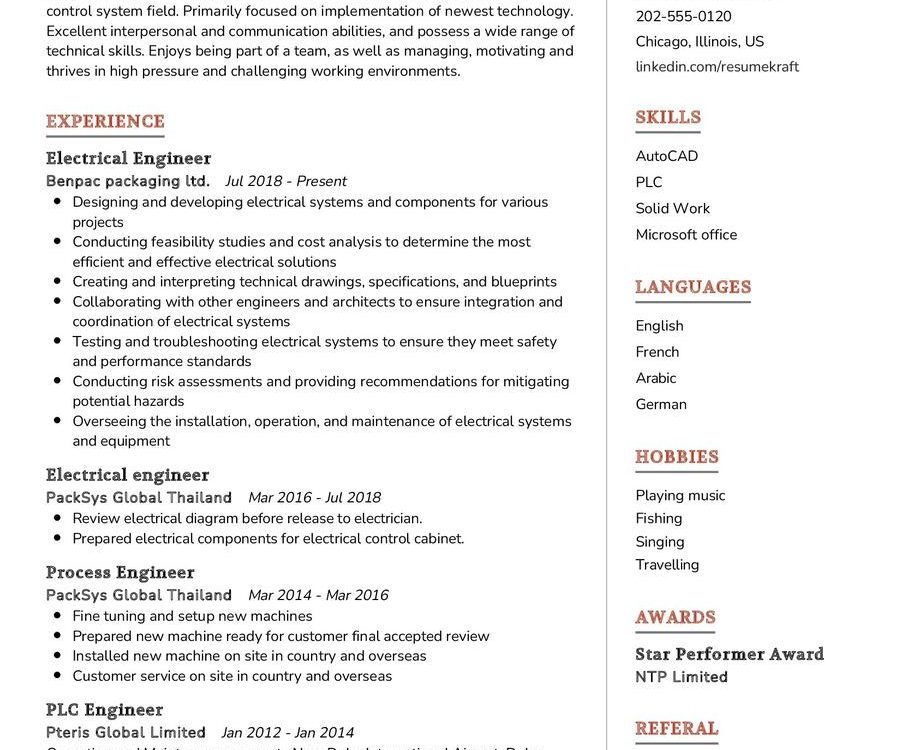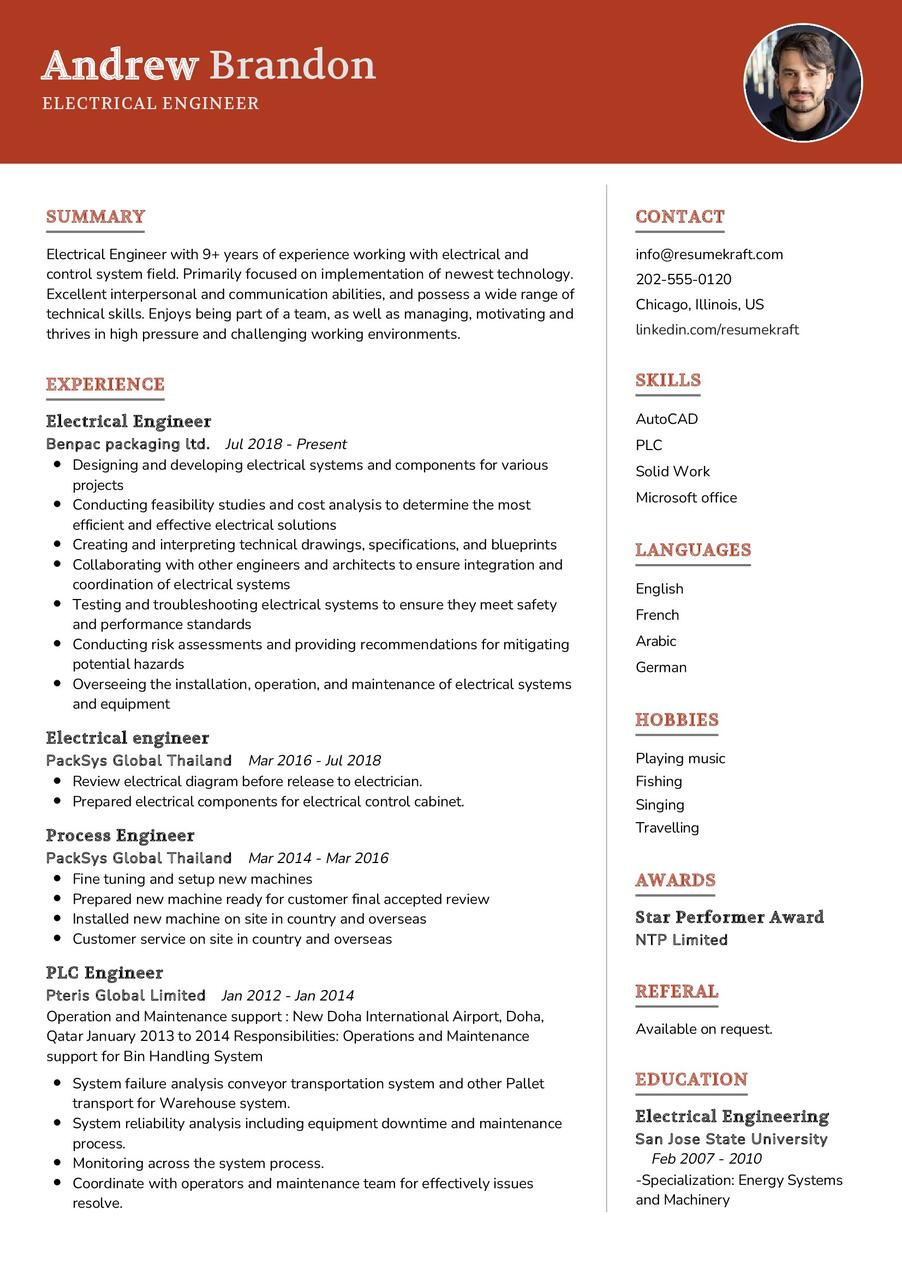Exploring the Role of an Electrical Engineer
As technology advances, the role of an Electrical Engineer becomes increasingly crucial in various industries. This position requires a unique combination of technical expertise and problem-solving skills, making Electrical Engineers indispensable in the development and maintenance of electrical systems. Let’s delve into the multifaceted role of an Electrical Engineer, a profession that demands a deep understanding of electrical engineering principles coupled with effective problem-solving and innovation.
Key Requirements for an Electrical Engineer Position
Embarking on a career as an Electrical Engineer involves meeting specific educational and skill-related prerequisites. The journey is challenging yet rewarding, with a constant need for learning and hands-on experience. Let’s explore the essential requirements for aspiring Electrical Engineers:
- A Bachelor’s or Master’s degree in Electrical Engineering, showcasing a strong foundation in the technical domain.
- Proficient knowledge of electrical systems, circuits, and components, including practical experience in designing and troubleshooting.
- Hands-on experience with industry-standard tools and software used in electrical engineering, such as AutoCAD and MATLAB.
- Strong analytical and problem-solving skills, honed through coursework and real-world projects.
- Effective communication skills, allowing engineers to convey complex technical concepts to both technical and non-technical stakeholders.
- Adaptability and resilience, crucial in navigating the ever-evolving landscape of electrical engineering.
Acquiring additional certifications in specialized areas of electrical engineering can enhance your profile and competitiveness in the job market.
Responsibilities of an Electrical Engineer
The role of an Electrical Engineer is diverse, encompassing a wide range of responsibilities that contribute to the successful development and implementation of electrical systems. Let’s explore the core responsibilities that define the role of an Electrical Engineer:
- Designing and developing electrical systems, ensuring they meet safety and performance standards.
- Conducting feasibility studies and cost estimates for electrical projects, providing valuable insights for decision-making.
- Collaborating with cross-functional teams, including architects and project managers, to integrate electrical systems into larger projects.
- Performing regular maintenance and troubleshooting of electrical systems to ensure optimal performance and reliability.
- Staying updated on industry trends and advancements in electrical engineering, incorporating innovative solutions into projects.
- Ensuring compliance with relevant codes and regulations in all electrical projects.
Each responsibility comes with its unique challenges and learning opportunities, shaping an Electrical Engineer into a well-rounded professional.
Crafting an Effective Electrical Engineer CV
Your CV is a vital tool in presenting your skills and experience to potential employers. Crafting an effective Electrical Engineer CV involves highlighting your technical expertise, practical experience, and key achievements. Here are some tips to help you create a compelling CV:
- Emphasize your experience with specific projects, detailing your role and contributions.
- Showcase your proficiency in relevant software and tools, such as AutoCAD, to demonstrate your technical skills.
- Quantify your achievements with measurable results, such as improved system efficiency or successful project completions.
- Include relevant certifications and training programs to showcase your commitment to continuous learning.
- Tailor your CV for each application, aligning your skills and experiences with the specific job requirements.
Your CV is more than a document; it’s your professional narrative, showcasing your journey, skills, and aspirations as an Electrical Engineer.
Effective CV Summary Examples for an Electrical Engineer
Your CV summary is the opening statement of your professional story, providing a snapshot of your experiences, skills, and the value you bring to the table. Here are some examples to inspire you:
- “Results-oriented Electrical Engineer with over 8 years of experience, specializing in the design and implementation of efficient electrical systems for industrial projects.”
- “Innovative Electrical Engineer with a proven track record in project management, adept at collaborating with diverse teams to deliver successful electrical solutions.”
- “Experienced Electrical Engineer with expertise in renewable energy projects, committed to sustainability and integrating cutting-edge technologies into electrical systems.”
Your CV summary sets the tone for your application, providing recruiters with a quick overview of your qualifications and expertise.
Building a Comprehensive Experience Section for Your Electrical Engineer CV
The experience section of your CV is the heart of your document, narrating the story of your career and highlighting key milestones. Here are some examples to guide you:
- “Led the design and implementation of a solar power system, resulting in a 30% reduction in energy costs for the organization.”
- “Managed a team of engineers in the successful completion of a major electrical infrastructure project, ensuring compliance with safety standards and project timelines.”
- “Developed and implemented preventive maintenance programs, resulting in a 15% increase in the reliability of electrical systems.”
Each experience is a chapter in your career story, showcasing your contributions and impact on electrical engineering projects.
Education Section for Your Electrical Engineer CV
Your educational background is a crucial aspect of your CV, demonstrating your academic foundation and specialization. Here’s how you can present your educational milestones:
- Master of Science in Electrical Engineering, XYZ University, a journey of deep learning and specialization, 2015.
- Bachelor of Science in Electrical Engineering, ABC University, the foundation stone of your career, 2012.
- Professional Engineer (PE) License, obtained in 2016, showcasing your commitment to excellence and industry standards.
Each educational qualification is a stepping stone, contributing to your expertise as an Electrical Engineer.
Key Skills for Your Electrical Engineer CV
Your skill set is your toolbox, equipped with a diverse range of tools that you have honed over the years. It is a showcase of your abilities, both innate and acquired. Let’s list down the essential skills that an Electrical Engineer should possess:
Technical Skills:
- Proficient in AutoCAD and MATLAB, essential tools in electrical engineering design and analysis.
- Experience in PLC programming and control systems, showcasing your expertise in automation.
- Knowledge of electrical codes and standards, ensuring compliance in all projects.
- Familiarity with power distribution systems and electrical troubleshooting techniques.
- Ability to conduct feasibility studies and cost estimates for electrical projects.
Soft Skills:
- Effective communication and interpersonal skills, essential for collaborating with cross-functional teams and presenting technical information to non-technical stakeholders.
- Analytical thinking and problem-solving abilities, crucial in addressing complex issues in electrical systems.
- Attention to detail, ensuring accuracy in design and implementation processes.
- Project management skills, enabling you to oversee the successful completion of electrical projects.
- Adaptability and resilience, vital in navigating the dynamic field of electrical engineering.
Each skill is a tool, aiding you in providing exceptional contributions to electrical engineering projects and leading your team effectively.
Common Mistakes to Avoid When Writing an Electrical Engineer CV
Avoiding common pitfalls is essential when crafting your CV. Here are some mistakes to steer clear of:
- Using generic language and failing to highlight your unique contributions to electrical engineering projects.
- Omitting measurable achievements, missing an opportunity to showcase the impact of your work.
- Disregarding the importance of a well-crafted CV summary, a key element in capturing the recruiter’s attention.
- Overloading your CV with technical jargon without providing context for non-technical readers.
- Neglecting to proofread your CV, as errors can negatively impact your professional image.
Avoid these mistakes to ensure your CV is both authentic and compelling, effectively showcasing your qualifications as an Electrical Engineer.
Key Takeaways for Your Electrical Engineer CV
As we conclude this comprehensive guide, let’s recap the key points to keep in mind while crafting your Electrical Engineer CV:
- Emphasize your experience with specific projects, showcasing your role and contributions.
- Showcase your proficiency in relevant software and tools to demonstrate your technical skills.
- Quantify your achievements with measurable results, providing evidence of your impact on projects.
- Include a section on continuous learning, showcasing certifications and training programs undertaken.
Finally, feel free to utilize resources like AI CV Builder, CV Design, CV Samples, CV Examples, CV Skills, CV Help, CV Synonyms, and Job Responsibilities to create a standout application and prepare for the Electrical Engineer job interview.
Armed with these insights and tips, you are now ready to craft a CV that is a true reflection of your journey, your skills, and your aspirations. Remember, your CV is not just a document; it is a canvas where you paint your career story, a story of growth, learning, and success. Best of luck!


